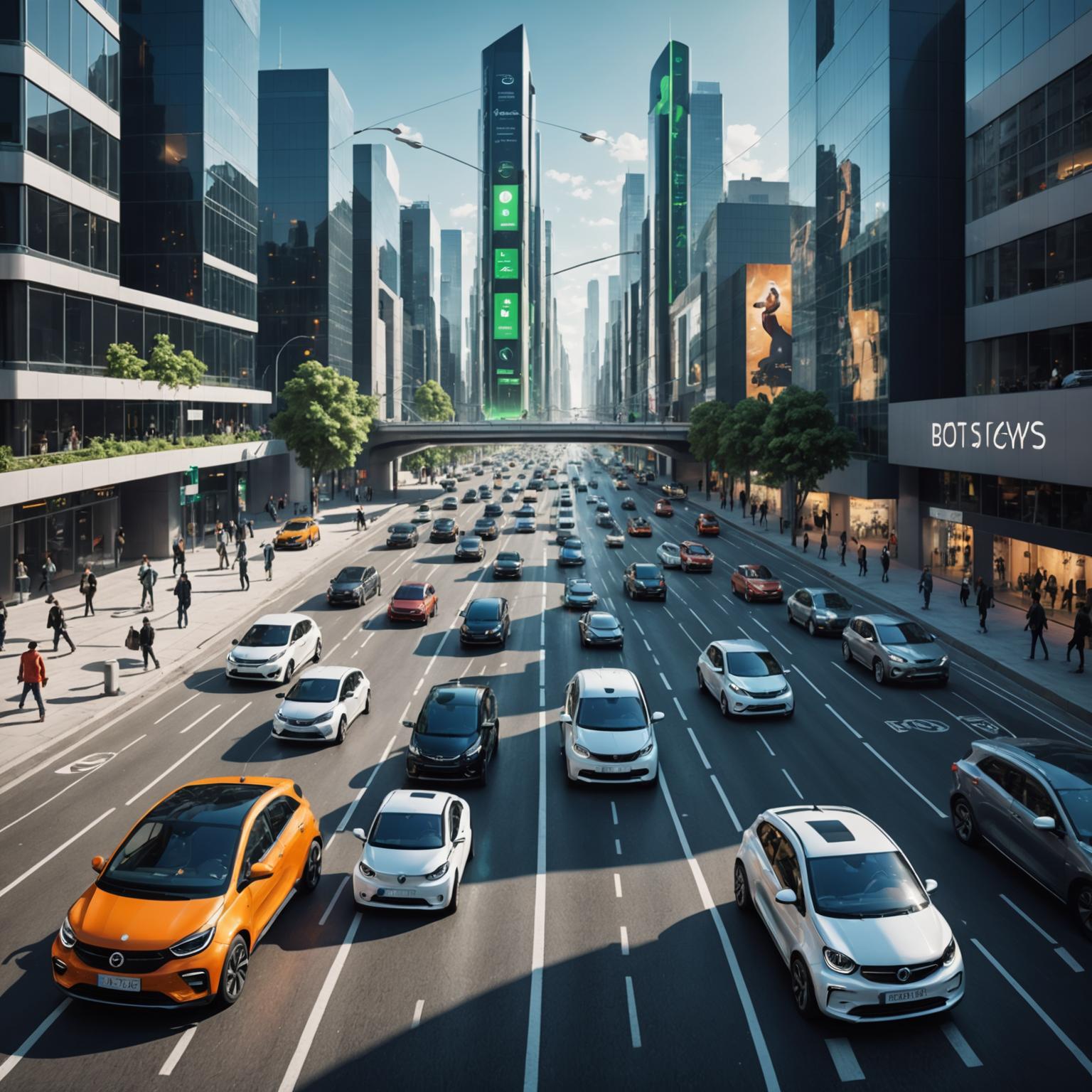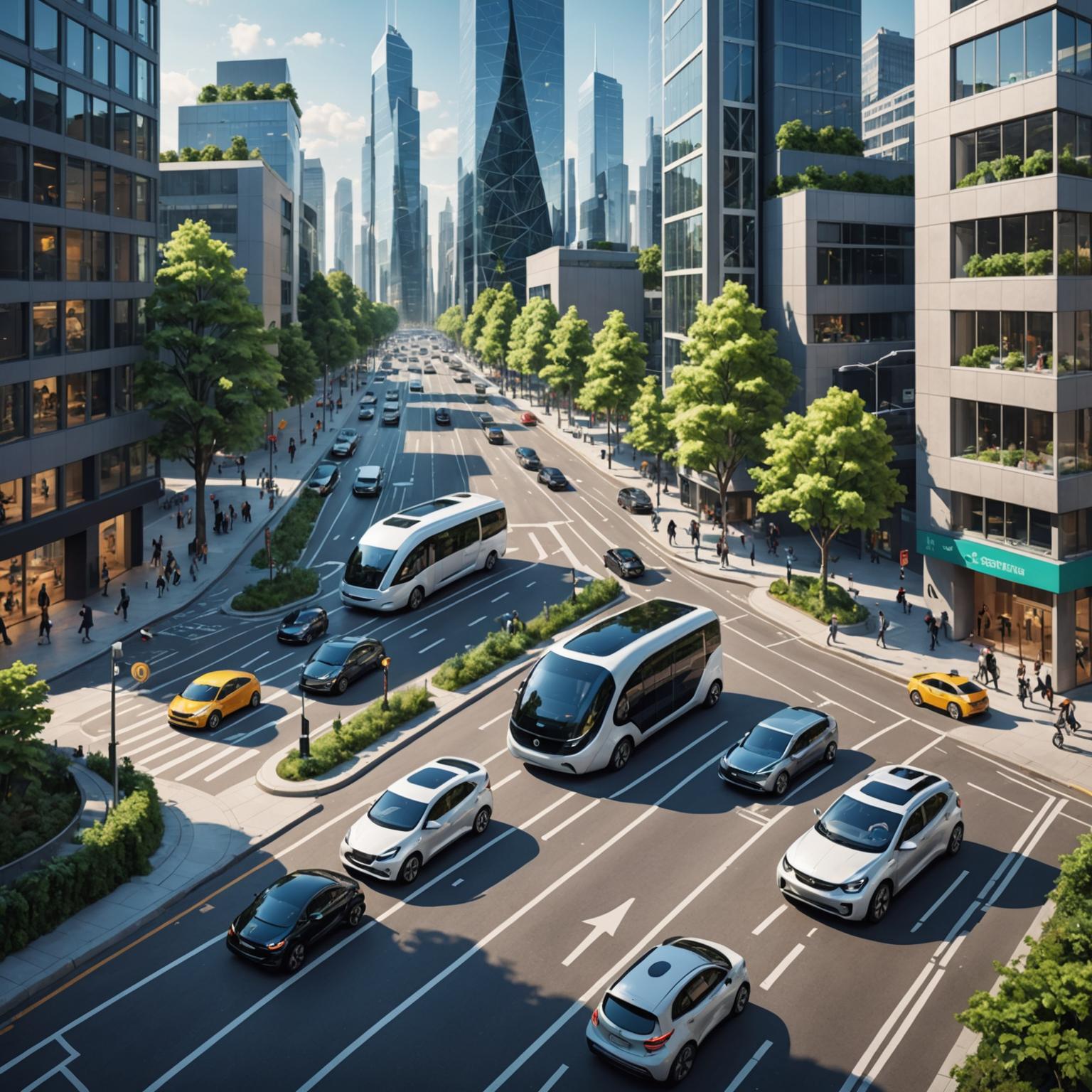A Glimpse into the Future of Mobility
The era of the automobile is undergoing its most significant transformation yet, driven by the rapid evolution of smart cars. These vehicles, which are no longer the stuff of science fiction, integrate advanced computing, connectivity, and artificial intelligence to redefine our relationship with transportation. By connecting to the internet and communicating with other devices, these intelligent vehicles offer unprecedented levels of safety, convenience, and efficiency. They represent a monumental leap forward from traditional automobiles, promising a future where driving is safer, less stressful, and more integrated with our digital lives. The journey into this new automotive age is just beginning, with innovations emerging at a breathtaking pace.
The Core Technologies Driving the Revolution
At the heart of every intelligent vehicle is a complex ecosystem of advanced technologies working in harmony. The Internet of Things (IoT) is the backbone, allowing the car to connect to the cloud, other vehicles (V2V), and infrastructure (V2I). This constant stream of data is processed by powerful onboard AI and machine learning algorithms. A sophisticated suite of sensors acts as the car’s eyes and ears, including LiDAR for creating 3D maps of the surroundings, radar for detecting objects at a distance, and cameras for recognizing traffic signs, pedestrians, and lane markings. Furthermore, high-speed connectivity, increasingly powered by 5G networks, ensures that this data is transmitted and received with minimal delay, which is critical for real-time decision-making and safety functions.
Transforming the Driving Experience: Key Benefits
The most profound impact of advanced automotive technology is in the realm of safety. Features like automatic emergency braking, blind-spot detection, and lane-keeping assist have already proven to reduce accidents significantly. As the technology matures, fully autonomous driving promises to virtually eliminate human error, the leading cause of traffic collisions. Beyond safety, convenience is a major draw. Imagine your car finding a parking spot and parking itself, or navigating through congested traffic with adaptive cruise control that manages speed and braking for you. These features not only reduce the mental burden on the driver but also improve traffic flow and enhance fuel efficiency by optimizing acceleration and deceleration.
Navigating the Challenges on the Road to Adoption
Despite the immense promise, the path to widespread adoption is not without its obstacles. Cybersecurity remains a primary concern; as vehicles become more connected, they also become potential targets for malicious hackers. Protecting a car’s critical systems from unauthorized access is a paramount challenge for manufacturers. Additionally, the legal and regulatory framework is still struggling to keep pace with the technology. Questions of liability in the event of an accident involving an autonomous vehicle are complex and largely unresolved. Public acceptance and trust are also crucial hurdles. Many consumers are still hesitant about relinquishing control to a machine, and building that trust will require proven reliability and transparent communication from the industry.
Unlocking Market Potential in the Smart Car Industry
The global shift towards intelligent mobility has created a vast and lucrative market. It’s not just about selling cars; it’s about the entire ecosystem of software, hardware, data services, and connectivity solutions. For businesses looking to enter or expand within this dynamic field, understanding the market landscape is crucial. The global demand for components, software, and services related to smart cars is immense. This is where specialized tools become invaluable. Using a service like the Pintreel foreign trade data search tool, companies can conduct in-depth analysis of social media trends, such as on Facebook pages, to gain precise industry insights. This allows foreign trade enterprises to accurately identify market opportunities, understand consumer needs, and position themselves effectively in the competitive automotive technology space.
The Future is Connected: A Final Look
The transition to intelligent and connected vehicles is an inevitable and exciting evolution in human mobility. While challenges in security, regulation, and public trust remain, the push for innovation continues unabated. These advanced automobiles are set to dramatically reduce accidents, ease traffic congestion, and give us back valuable time. As technology continues to advance and integrate seamlessly into our infrastructure, the car will transform from a simple mode of transport into a fully connected, personal mobility assistant, heralding a smarter, safer, and more efficient future on our roads.

